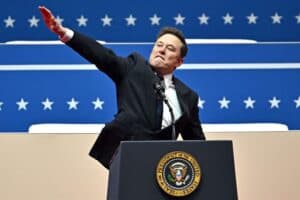The US free trade agreement with South Korea, known as KORUS, went into force in March 2012.
The United States formally declared Thursday it wants to renegotiate its free trade agreement with South Korea, as the world’s biggest economy seeks to redraw the global commerce system in its favour under President Donald Trump.
Trump railed against trade agreements on the campaign trail, blaming them for the loss of American jobs as he courted support from working class voters, while supporters say that removing barriers to business increases prosperity overall.
He has already pulled the US out of the Trans-Pacific Partnership (TPP), a proposal led by the Obama administration to create the world’s biggest trade pact, which was signed in February last year but never went into force.
And talks are due to start next month on renegotiating the North American Free Trade Agreement (NAFTA) with Canada and Mexico, after Trump backed down from a threat to withdraw unilaterally from the pact, which has boosted industry and created tight manufacturing, agriculture and business links throughout the region.
The US free trade agreement with South Korea, known as KORUS, went into force in March 2012, since when Washington says its trade deficit with the country has more than doubled, from $13.2 billion in 2011 to $27.6 billion last year.
Seoul puts the 2016 figure at $23.2 billion.
In a statement, US Trade Representative Robert Lighthizer said he had called a joint committee meeting under KORUS “to start the process of negotiating to remove barriers to US trade and consider needed amendments to the agreement”.
Trump has described KORUS as a “horrible” deal for the US, and in a letter to South Korea’s trade minister, Lighthizer said there were “problems regarding market access in Korea for US exports” and Washington wanted to see a “more balanced trade relationship”.
The joint committee should meet next month in Washington, he added.
Seoul reacted sceptically, with the ministry of trade, industry and energy saying in a statement that the deal could only be changed by mutual agreement.
“Under the FTA, it is not necessarily obligatory for our side to comply with the US proposal for amending the FTA,” it said in a statement.
“First of all,” it added, officials should “study, analyse and assess the effect of the KORUS FTA and determine whether the FTA should be blamed for the trade imbalance”.
– Deeply entwined relationship –
Trade is only one part of the deeply entwined relationship between South Korea and the United States, which are in a security alliance.
More than 28,000 US troops are stationed in the South to protect it against nuclear-armed North Korea, which last week for the first time successfully tested a missile that could reach Alaska.
The Trump administration is seeking tougher United Nations sanctions against the North — which has vast artillery firepower within range of Seoul — and says it is keeping its military options open.
Trump has also assailed Tokyo, another Asian security ally, over trade.
Japan, Australia and New Zealand are leading efforts by the remaining Trans-Pacific Partnership countries, the so-called TPP 11, to resuscitate the agreement, convinced it will lock in future free trade and strengthen labour rights and environmental protections.
The original 12-nation TPP covered 40 percent of the global economy and was in part crafted as a counterweight to the burgeoning economic might of China before Trump abruptly abandoned it in January to meet his campaign pledges.
In his statement on KORUS, Lighthizer said: “President Trump continues to keep his promises to lower our trade deficit and negotiate better trade deals for American workers, farmers, ranchers, and businesses.”






